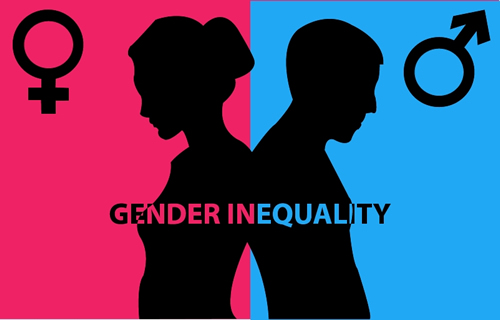Women’s rights coalition pushes for bridging gender gaps
 Network for Women’s Rights in Ghana (NETRIGHT) has organised a workshop for stakeholders in the agricultural sector to engage duty-bearers on gender gaps in the agricultural and land sectors.
Network for Women’s Rights in Ghana (NETRIGHT) has organised a workshop for stakeholders in the agricultural sector to engage duty-bearers on gender gaps in the agricultural and land sectors.
It also discussed ways to effectively implement policies designed to promote gender equality in the implementation of agricultural development policies and programmes; share key recommendations to promote women’s rights in the agricultural and land sectors, and share critical concerns in the land Bill.
The day’s workshop, which provided a space for dialogue among legislators and policy-makers responsible for designing and implementing policies to promote an all-inclusive agricultural development in the country, was funded by the USAID Agriculture Policy Support Project.
About 40 participants drawn from Parliament, Ministries, Departments and Agencies, institutions/organisations and other key stakeholders including Trades Unions, Civil Society Organisations and the media attended the workshop on the theme, “Strengthening Gender Responsive Policy Processes in the Agricultural Sector”.
Ms Patricia Blankson Akakpo, Programme Manager, NETRIGHT said the network is implementing a project on strengthening gender responsive policy processes in the agriculture and it formed part of a broader programme on “Enhance Private Sector Participation in the Agriculture Policy Process in Ghana”.
The project, which was under the USAID Ghana Feed the Future Agriculture Policy Support project, sought to empower women and women’s rights organisations to actively engage in evidence-based gender-responsive policy advocacy in the agriculture sector to enhance livelihoods.
Ms Akakpo said there was the likelihood that little attention might be given to women, who are smallholder farmers in the Planting for Food and Jobs (PFJ) initiative, if there were no advocacies to raise their voices.
“The inclusion of female farmers in the PFJ programme will make it more equitable, sustainable, and productive than one based on a large-scale farm model. Women farmers for instance, are critical actors to land, and access to extension services,” she added.
She said the government’s increasing priorities towards private sector investments in the agricultural sector made it critical to ensure that women’s rights were protected in the sector.
The Programme Manager said to achieve gender equality in the agricultural sector required that all stakeholders in the sector played a critical role in ensuring that agricultural policy interventions benefited women and men equally, including fair and equitable distribution of resources of which land was a key factor.
Professor Dzodzi Tsikata, Director, Institute of African Studies, University of Ghana, said in Africa women’s involvement in agriculture was very key to the survival of the family, yet there was persistent gender inequality in the sector.
She said it was about time to be patience and look at the policies and laws of the country since people always think the challenge had to do with implementation alone.
“We should judge policies on how well they are addressing the issues such as labour, credit and technology. We also need to pay attention to gender smallholder agrarian system,” she added
She identified gender segmentation in agriculture; weak protection of common property system; lack, gender differential in care work, acquiring lands and credits as some of the challenges confronting women in the sector.
Ms Gertrude Dzifa Torvikey, a Consultant, said though the Land Bill was to harmonise the laws to ensure efficient land regimes, it failed to specify how compensations should be managed.
She also noted that the bill was silence on the name given to land allocated to women and simply referred to it as husband allocation and emphasised the need to correct that anomaly before the bill was laid before Parliament.
Mr Francis Manu-Adabor, Chairman of Parliamentary Select Committee on Land and Forestry, on his part, promised to arrange a meeting with the Chairmen of Parliamentary Committees on Gender and Agriculture for NETRIGHT to make presentation on the issues to inform them before the bill is laid.
He urged the group to step up the advocacy to create awareness on gender inclusion and pledged his support for the debate to enable the three committees understand the concept before the bill comes to Parliament.
Most of the participants agreed that the awareness creation should go beyond the bill to engage traditional practices, where most of the challenges come from.
NETRIGHT is a network of civil society organisations and individuals who have a clear interest in working together to bring a gender perspective into national processes and advocate for policy change to strengthen women’s human rights.
Source: GNA
